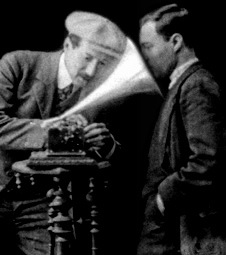

Once upon a time, there were fifteen linguists who all did fieldwork on the same language in several nearby villages.
 Theirs was a friendly rivalry, and they each had different theories about the best way to gather the greatest number of high-
Theirs was a friendly rivalry, and they each had different theories about the best way to gather the greatest number of high-
Interestingly, because of his theories of elicitation, the first linguist felt that he only needed one informant. The second linguist had a different theory that required that she have only two informants. The third linguist, a lowdown dirty lexicalist if ever there was one, had three informants
At the end of the fieldwork season, the fifteen linguists compared notes, and discovered several interesting facts. For one thing, for each linguist, all of his or her informants had given the exact same number of example sentences. Even more surprisingly, the total number of example sentences each linguist had gathered was nearly the same. In fact, if the eleventh linguist gave the seventh linguist one datum, and the fourteenth gave three examples each to the ninth and thirteenth linguists, then all fifteen linguists would have the same number of examples in their own corpus.
After they shared a little data around as described above, how many utterances did each have in his or her corpus?
If you think you’ve figured out the answer, submit your solution to the editors of SpecGram by January 15, 2014, and you could win a prize.* Solutions and winners will be announced in an upcoming issue.
Some plausible answers to last month’s query concerning L’Ishing du Gwujlang mnemonically merged definitions (MMDs) are presented below:
|
Thanks to Ophir Lifshitz and Trey Jones for their contributions to the decipherment. Each will receive a prize for their help.
* Note that even newer SpecGram Anti-
† Except where taxed, prohibited by law, or otherwise restricted, constrained, limited, regulated, controlled, hindered, impeded, hampered, obstructed, checked, curbed, shackled, confined, or otherwise subject to thesaural interference.
 |
Local Linguist Mom Discovers One Weird Trick for Deriving NLP Equations! |
 |
SpecGram Vol CLXIX, No 1 Contents |